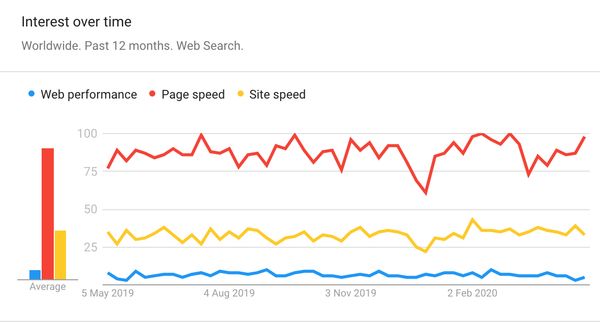Is it time for a Web Performance rebrand?
Web performance has been a hot topic in web development and browser engineering since the first public web pages. The first book on the topic, Web Performance Tuning: Speeding Up the Web was published in 1998, with Steve Souders kicking off the Web Performance Optimisation industry when he published his book High Performance Websites nine years later in 2007.
As an industry-within-an-industry we have built resources, adopted hashtags (#WebPerf, #PerfMatters) and created meetups and conferences (LDNWebPerf, #PerfMatters, Performance.now). We've focused in on a subset of web development, whilst simultaneously complaining that it's hard to get business buy-in and wider appreciation of the topic. We've even created a site to collect proof that web performance is important to business success! We know that web performance is important, but we consistently struggle to convince the wider world to prioritise speed as a feature.
Something that has long troubled me when discussing web performance with customers (and friends outside the industry) is that the term "web performance" is ambiguous, it means different things to different people. To someone in marketing it might mean the performance of web campaigns, measured in click-through rate and engagements. To ecommerce it might mean the business performance of the website, measured in conversions and revenue. To SEOs it could be the ranking of key pages, and to performance artists it means using the web as a medium for their art!
This ambiguity can work in our favour; it means our messaging lands with lots of different parties within a business: everyone wants to improve web performance! This often leads to confusion in the first meeting, requiring early clarification of what web performance means to us and our tools & services. I find myself describing our version of web performance as "measuring and optimising the speed of a web or mobile application to maximise user experience and business success".
Web Performance is measuring and optimising the speed of a web or mobile application to maximise user experience and business success
If we are to correctly engage the broadest possible audience with our messaging, we could do better with more targeted language. Should we be using a different term when generating marketing material and engaging with external stakeholders?
What is #webperf most commonly known as, outside of the web development industry? (E.g. Marketing, UX, Execs)
— Simon Hearne (@simonhearne) May 1, 2020
Site speed or page speed are often mentioned by executives and analysts. I think we can assume that Google is to thank here! Web performance stats in Google Analytics are under the Site Speed section, and PageSpeed Insights is the Google tool to find performance issues. How often do we hear "We need to improve page speed" vs. "We need to improve web performance"?
Whilst certainly not scientific, a quick look on Google Trends shows that page speed is by far the most common search term, followed at some distance by site speed, with web performance barely registering at ~5% relative interest.

Take a look at #SiteSpeed on Twitter and you will see tweets from a range of SEO, business and Marketing folks, whereas the #WebPerf hashtag is mainly technical tweets from folks in the industry, tools providers or front-end developers.
Web Performance and Web Performance Optimization are still valid and descriptive terms for our industry, but we might benefit from a change to our language when working with others. The language we use could be critical to the success of making the web a faster and more accessible place.
I'll be testing this out with my messaging to clients, I'd be interested in your thoughts too. Some other ideas from the community:
- SSO (Site Speed Optimisation) - from Aaron Peters
- UXSpeed - from Sergey Chernyshev
- WebSpeed - from Šime Vidas